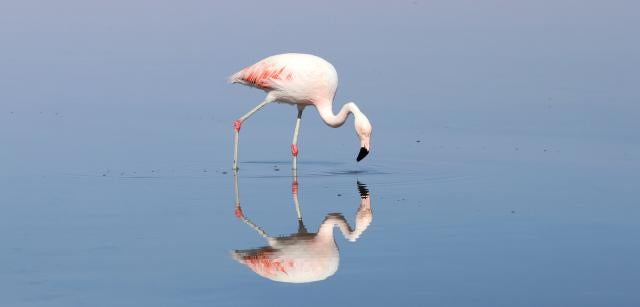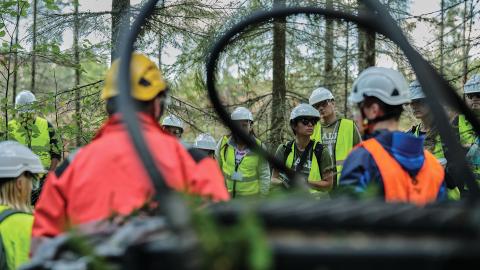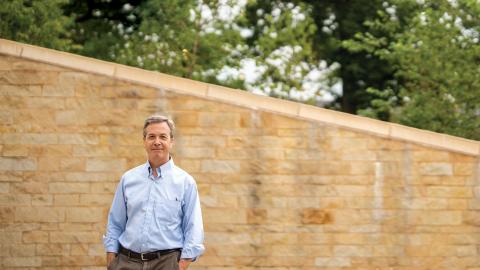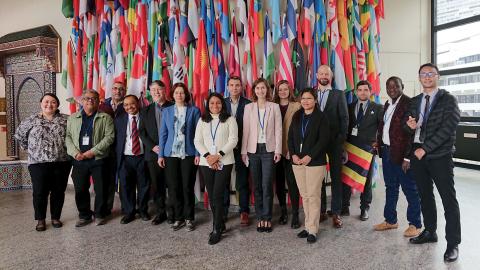
A striking Chilean flamingo with gray legs and pink leg joints wades through water in Los Flamencos National Reserve. Photo taken by Dean Indy Burke during a Yale Alumni Academy trip to Chile from January 19 to February 2, 2023.
This past winter I traveled to Chile with the Yale Alumni Academy. It was a remarkable opportunity to learn more about the country’s climate and environment and observe the effects of climate change firsthand. (Thank you to URI through the Yale Community Carbon Fund for the opportunity to offset the trip though travel miles!) On the last day of the trip, I had lunch with two Chilean alumni, who told me how important their experience at YSE had been to their professional development and how much they’d like to help recruit more students from Chile to our school.
I am extremely proud of YSE’s role in educating and supporting such dedicated and talented young climate leaders. I also am thrilled about the establishment of the Three Cairns Climate Program for the Global South at YSE. Launched last summer, this transformative initiative will greatly expand our ability to support emerging climate leaders in areas of the world that are most vulnerable to the impacts of climate change. It also will bring new perspectives and fresh ideas to YSE and Yale that will benefit our entire community. We’re grateful to Lise Strickler ’82 and Mark Gallogly, co-founders of the Three Cairns Group, for the opportunity to establish this landmark program.
In the past year, our faculty has made great progress in expanding our capacity to address global environmental challenges in many areas. In addition to the Three Cairns Climate Program for the Global South, the Center for Green Chemistry and Green Engineering at YSE is leading a U.N.-backed initiative, the Global Greenchem Innovation and Network Programme, that will greatly accelerate research, development, and training in green chemistry in Indonesia, Jordan, Peru, Serbia, Uganda, and Ukraine. The Yale Program on Climate Change Communication continues to lead the field in examining and understanding public opinion and behavior about climate change, recently surveying attitudes of Generation Z and millennials on global warming as compared to older generations and working with the Irish government on a national strategy to engage its population in climate change solutions. I hope you enjoy this issue’s interview with its founder and director Dr. Anthony Leiserowitz as much as I did. Also, in this issue, you’ll read about Professor Matthew Kotchen’s work on the Environmental and Energy Policy and the Economy Initiative, a novel effort to close the gap between what academics work on and their direct impact on policy through the presentation of research that provides impartial, nonpartisan evidence aimed at improving decision-making. And finally, you’ll also read about Professor Eli Fenichel’s work at the White House Office of Science and Technology Policy and Professor Daniel Esty’s work at the World Trade Organization.
Climate change, biodiversity loss, and other major environmental challenges are global problems with very local, often life-altering impacts. Our efforts to address them must be in partnership with those who are most often on the front lines — whether countries in the Global South or communities of color in the U.S. I am so grateful for your support, which is allowing us to expand our reach in new and promising ways!
INDY BURKE
Carl W. Knobloch, Jr. Dean


